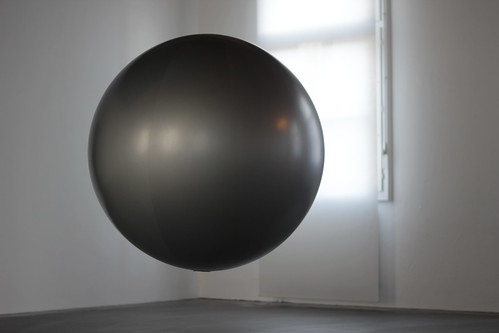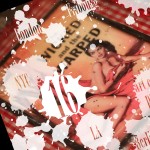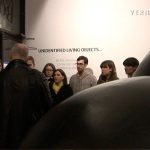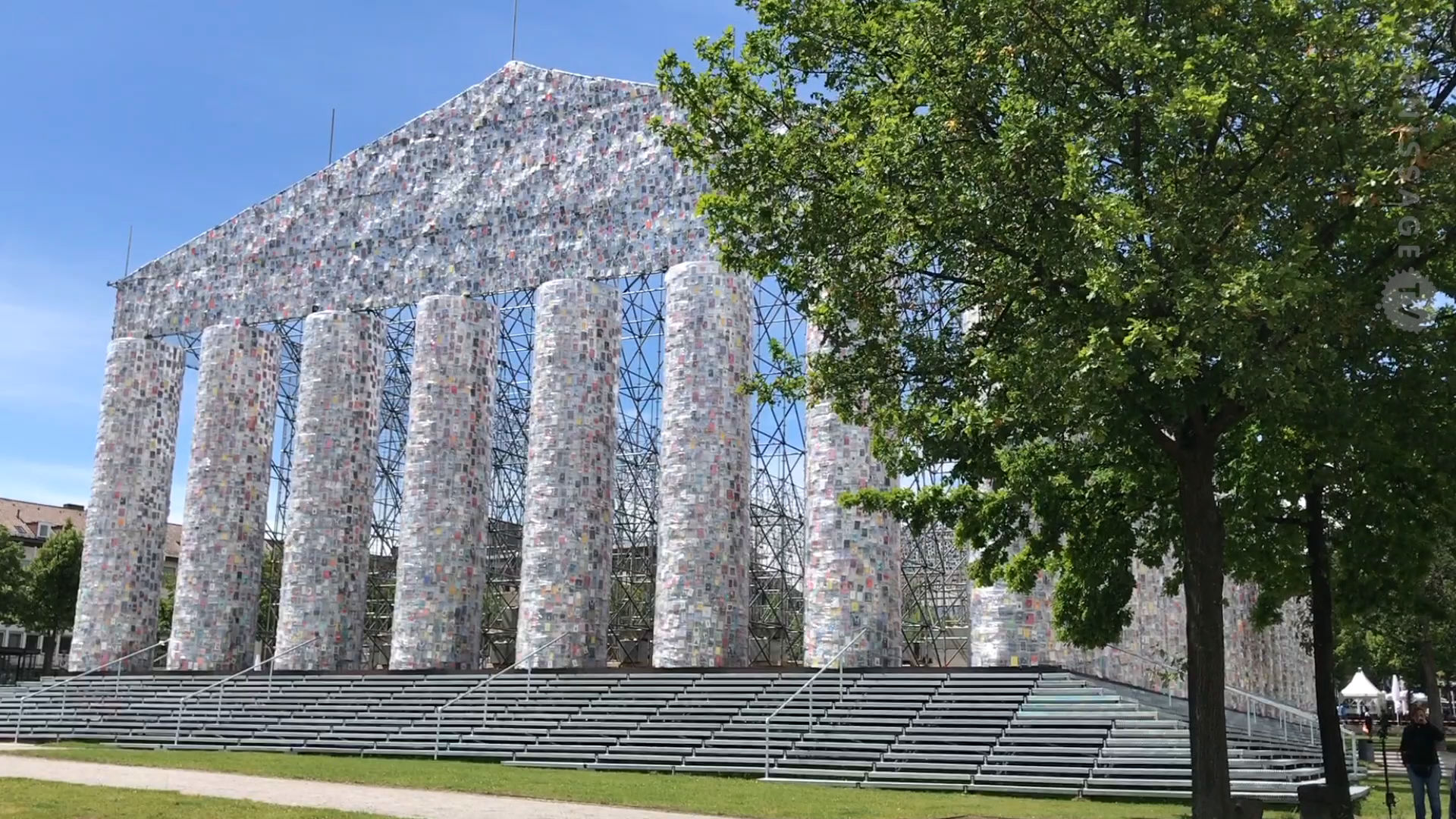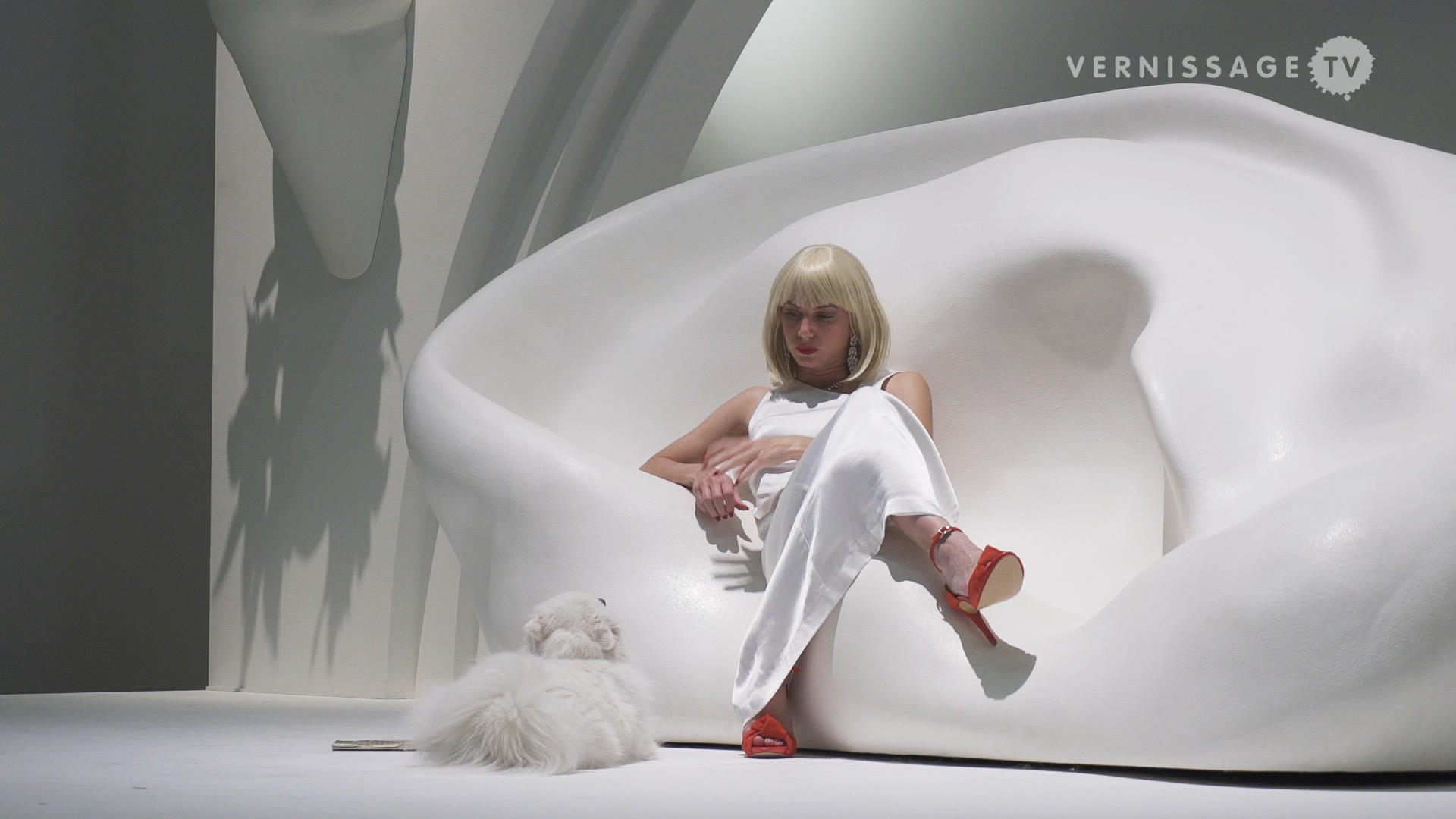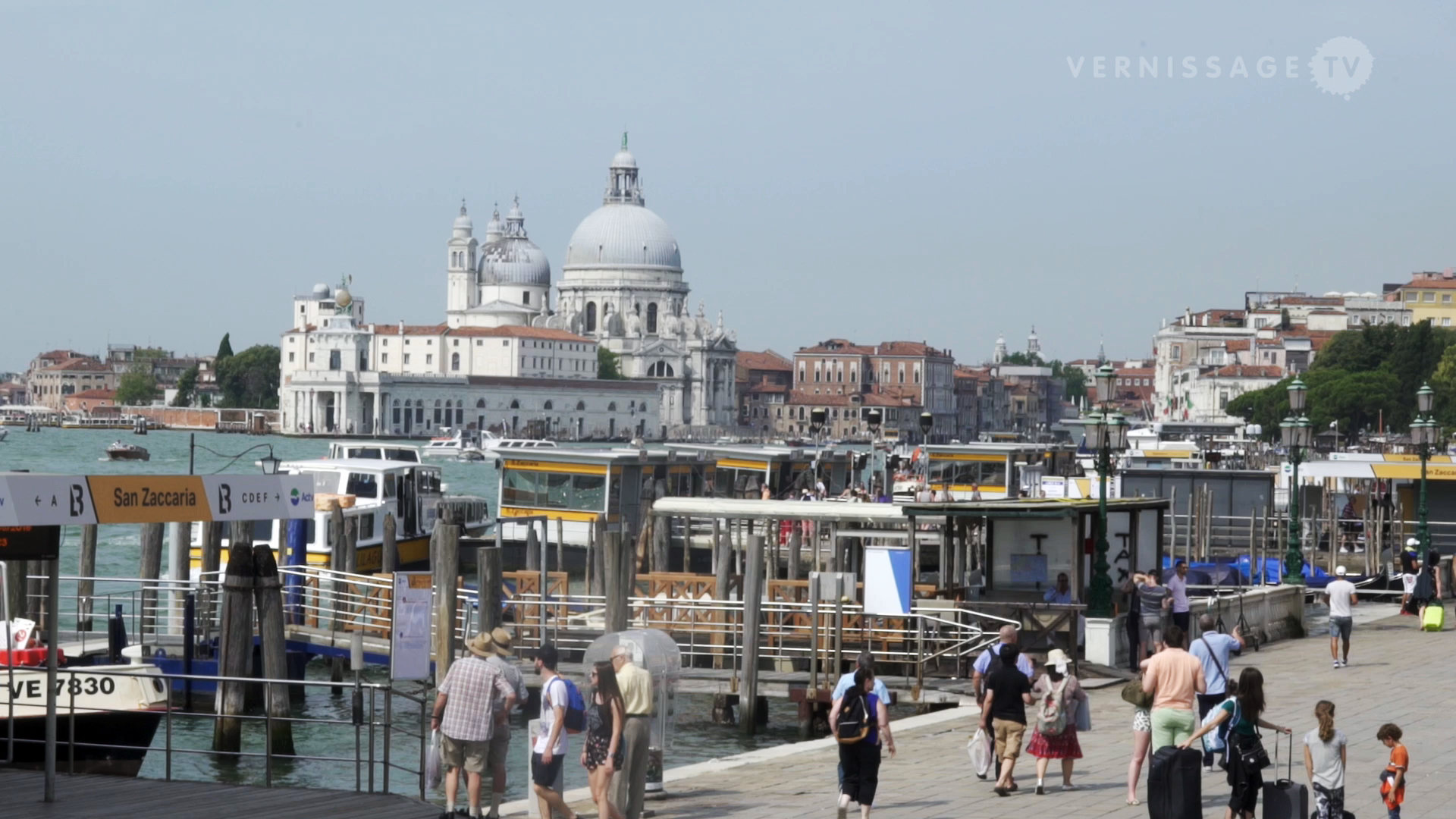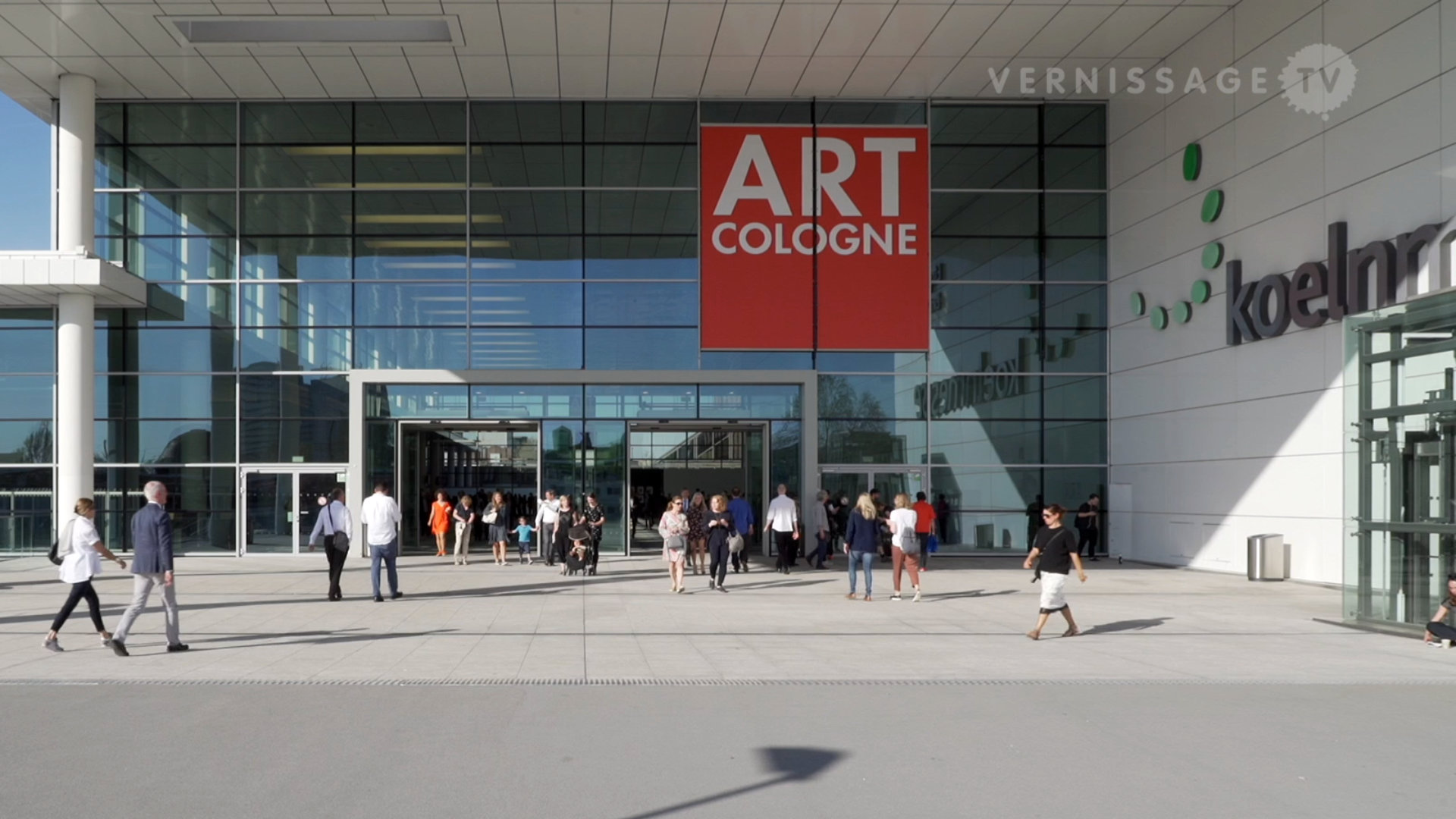Belgian artist Edith Dekyndt’s solo show “Dieu rend visite à Newton” at Fri Art – Centre d’Art de Fribourg is the first major exhibition in Switzerland. The show presents works specifically produced for the Centre, as well as other recent work. For the central project, A T P A P B L L E E, Edith Dekyndt has worked with a nanotechnology scientist from the Adolphe Merkle Institute to produce new pieces that question the ethical limits of science regarding the manipulation of living creatures.
VernissageTV had the chance to speak with Edith Dekyndt on the occasion of the press conference. In this interview, Edith Dekyndt talks about the works on display, the idea behind the A T P A P B L L E E project, her background and her interest in art and science, the collaboration with scientists, and the creation process. This segment is an excerpt of the 30 minutes interview. The complete interview is available after the jump.
Apart from A T P A P B L L E E, the other works on display are Radiesthesic Hall, Discreet Piece, Ground Control, and Myodesopsies.
Edith Dekyndt was born in 1960 in Belgium, where she lives and works. Her work was presented in several prestigious international institutions, notably with the personal exhibition Les ondes de Love at the Mac’s du Grand Hornu in Belgium (2010) or the collective exhibitions On Line. Drawing Transforming through the 20th Century at the MOMA in New York (2010); A l’ombre d’un doute at the FRAC Lorraine in Metz, France (2010); Silence, a composition at the Hiroshima Contemporary Art Museum (2009). Her work appears in several public collections, amongst which the MOMA, the Rotterdam Witte de With, several FRAC in France and the collections of the Hainaut Province.
Edith Dekyndt: Dieu rend visite à Newton / Fri Art – Centre d’Art de Fribourg (Kunsthalle Freiburg), Switzerland. Walkthrough and interview with Edith Dekyndt, February 11, 2011.
> Right-click (Mac: ctrl-click) this link to download Quicktime video file.
Full-length interview:
From the press release:
From February 13, 2011, Fri Art presents Edith Dekyndt’s Dieu rend visite à Newton – the internationally acclaimed Belgian artist’s a first major Swiss exhibition. Within the framework of this project, which explores shifts in perception between the visible world, beliefs and knowledge, Dekyndt presents art especially produced for the occasion, as well as other recent work.
Edith Dekyndt focuses on elements that are difficult to perceive without targeted attention, as well as on the scale ratio between the infinitesimal and the infinite. Her approach of hypotheses leads her quite naturally towards science, a discipline where she privileges the research process to the detriment of the result. Despite her sometimes high-tech scientific approach, her work displays an intimate feel, both discreet and delicate, more of a development of a question than a real answer, and based on hypothesis rather than assertion.
For her new project, especially conceived for this exhibition at Fri Art, A T P A P B L L E E, Edith Dekyndt has worked with a nanotechnology scientist from the Adolphe Merkle Institute to produce new pieces that question the ethical limits of science regarding the manipulation of living creatures. The project, which is illustrated by several pieces, explores the variations between the microscopic and the nanoscopic, as well as the shifts that take place in the particle proprieties of the infinitesimal. Thus, objects that are perfectly distinct on human scale can encounter at the particulate level , mingle and generate a new object. Through this project, the artist seeks to amalgamate the respective matters of a table and an apple – which shares the same scale ratio with a nano-particle as the Earth and an apple.
The other pieces featured at the exhibition question the notion of perception via simple means that range from observation and fundamental science to parallel sciences, challenging the limits between belief and knowledge.
Radiesthesic Hall, a piece presented at the Grand Hornu (Belgium) in 2010, is a large installation that renders magnetic currents in the art centre visible via a coded colour system. It will be carried out in collaboration with a local diviner.
With Discreet Piece, an installation based on a simple system of light and projection, Edith Dekyndt gives life to dust particles that dance in the rays of light.
Ground control is a large black ball that defies the laws of gravity by floating through the exhibition space, set in motion by variations in pressure and temperature. Filled with a subtle mixture of air and helium, this object – both autonomous yet sensitive to the visitors’ presence – is endowed with a singular eeriness.
Myodesopsies is an installation on a glass screen that reveals the opaque filaments that are naturally present within the glassy body of the eye, and which we are rarely aware of.
Edith Dekyndt was born in 1960 in Belgium, where she lives and works. Her work was presented in several prestigious international institutions, notably with the personal exhibition Les ondes de Love at the Mac’s du Grand Hornu in Belgium (2010) or the collective exhibitions On Line. Drawing Transforming through the 20th Century at the MOMA in New York (2010); A l’ombre d’un doute at the FRAC Lorraine in Metz, France (2010); Silence, a composition at the Hiroshima Contemporary Art Museum (2009). Her work appears in several public collections, amongst which the MOMA, the Rotterdam Witte de With, several FRAC in France and the collections of the Hainaut Province.
Partnership with the AMI (Adolphe Merkle Institute)
Inspired by her interest in nano-technology, the artist’s project has sprung from a collaboration with the Adolphe Merkle Institute, a hub for scientific research in Fribourg. This partnership is a premiere for Fri Art, and reflects our profound interest in the perception of reality within the field of the visual arts and beyond. The exhibition also emphasises Fri Art’s commitment regarding various poles of excellence within the Fribourg region, and its desire to develop collaborative projects.
